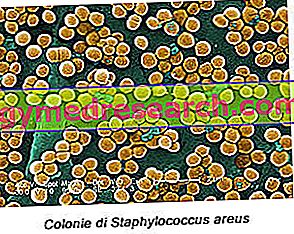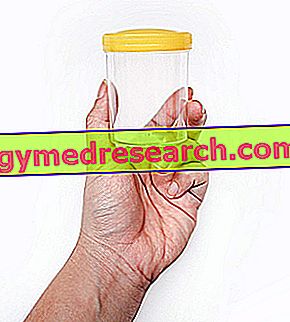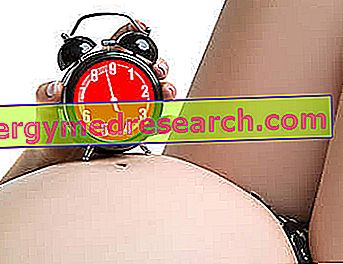Definition
Commonly called varicose veins, the varicose veins refer to anomalous dilatations, pathological and permanent, of the veins: these are elongated, dilated and evident. The veins most involved in the pathology are the superficial ones of the legs.
Causes
There are three causal factors mostly involved in the appearance of varicose veins: insufficiency of the venous valves, thrombus of the deep veins, compression of the vessels (responsible for the increase in intraluminal venous pressure).
Symptoms
Although varicose veins become very evident due to the relevance and the violet-bluish coloring they take, in some affected individuals they do not generate any pain. In the event of severity, the patient complains of swollen ankles, muscle cramps, edema, migraine, tingling, swollen / tired legs, constant perception of cold and telangiectasia.
Information on Varicose Veins - Varicose Veins Cures do not intend to replace the direct relationship between health professional and patient. Always consult your doctor and / or specialist before taking Varicose Veins - Varicose Veins Treatment Drugs.
drugs
It is a good rule to treat varicose veins from the earliest symptoms, not so much to solve an aesthetic problem, but rather to avoid serious complications such as bleeding, phlebitis, infections and ulcerations.
Phlebotonic drugs : they are able to increase the tone of the vein wall, consequently reducing the feeling of fatigue and heaviness in the legs
- Diosmin (eg. Alvenex, Daflon, Diosven, Diosmin EG) belongs to the class of flavonoids. It is recommended to take one 300 mg tablet three times a day. Continue therapy for a period of time established by the doctor, based on the severity of the disease.
- Oxerutina (eg Venoruton) particularly indicated in case of venous insufficiency due to varicose veins of the lower limbs. Oral administration of 500 mg of drug twice a day is recommended. The active ingredient is also available as a cream, ointment or gel, to be applied locally.
Profibrinolytics : they release the accumulations of fibrin that have formed due to vascular lesions such as, for example, varicose veins
- Streptokinase (eg Streptase) enhances fibrinolytic activity, improving the clinical profile of the patient suffering from varicose veins. It is recommended to administer the drug for slow intravenous infusion: 250, 000 units in 30 minutes, followed by 100, 000 units every hour for 12-72 hours, depending on the severity of the disorder.
Sclerotherapy : injections of sclerosing substances
- Sodium tetradecyl sulfate (eg Fibro Vein) the drug is administered by slow injection into a segment of vein, empty and isolated. The recommended dose varies from 0.1 to 1 ml of a 0.2% solution: the dosage may vary depending on the conditions of the varicose vein and the location.
- Ethanolamine oleate (eg Ethamolin) administered by slow injection into a vein segment, the dosage should be established by the doctor based on the severity of the pathology.
- Laureth-9 (polidocanol): to be used exclusively for slow intravenous injection. For the treatment of varicose veins (diameter less than or equal to 1 mm: telangiectasias), a 0.5% injection is recommended. When the diameter of the varicose vein is between 1 and 3 mm, it is recommended to use the drug at 1%. Use 0.1-0.3 ml per injection, and no more than 10 ml per session.
Anticoagulates : They are useful for promoting circulation in the presence of varicose veins, although many scholars are doubtful about their curative activity for this disease.
This category includes heparinoids, used in therapy against varicose veins for their anticoagulant action. For example:
- Sulfopoliglycan (eg. Hirudoid) can be found in the form of a cream (40-50 g) or gel (40-50 g) to be applied directly to the area affected by varicose veins. Consult your doctor.
- Heparan sulphate (eg. Clarema, Hemovasal) apply the product (cream-gel) 2-3 times a day, so as to cover the entire area affected by varicose veins.
Natural "drugs" against varicose veins : even herbal medicine plays an important role in the treatment and improvement of symptoms related to varicose veins: among all, the horse-chestnut ( Aesculus hippocastanum ); precious ally of blood veins and capillaries. This plant has a powerful capillary-protective, anti-edema and decongestant activity, therefore it is indicated in episodes of peripheral venous insufficiency and varicose veins. For the same reasons, in the case of varicose veins are also indicated ointments based on centella asiatica ( Centella asiatica L., eg CENTELLASE), ruscus ( Ruscus aculeatus ), red vine ( Vitis vinifera ), black bilberry ( Vaccinium myrtillus ).
In the case of severity and risk of complications, the patient suffering from varicose veins undergoes surgery, consisting in the removal of the diseased venous portion and in the subsequent re-connection of the tracts upstream and downstream of the excision.
In the case of varicose veins, prevention is very important, if not essential, even if there is no primary prophylaxis proper. It would be useful:
- avoid staying upright, almost motionless, for a long time → venous hypertension
- follow a low-calorie diet and take plenty of fluids in case of overweight / obesity
- avoid excessively hot places → vasodilation
Local compression performed with elastic stockings or bandages is useful for preventing varicose vein complications (objective: to avoid venous hypertension)



